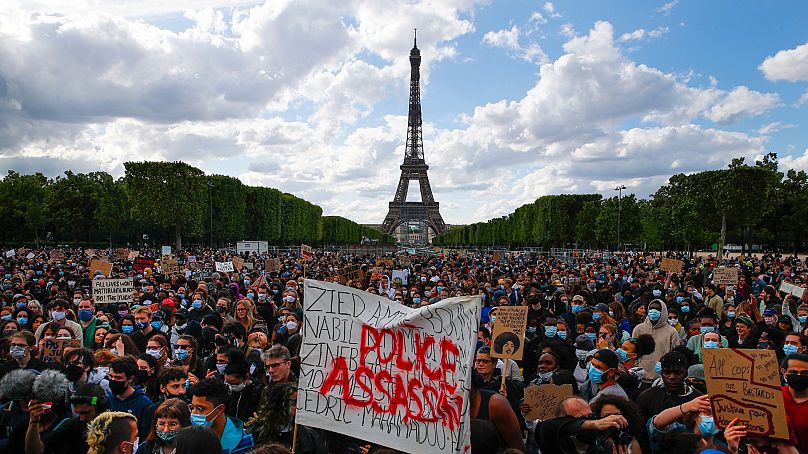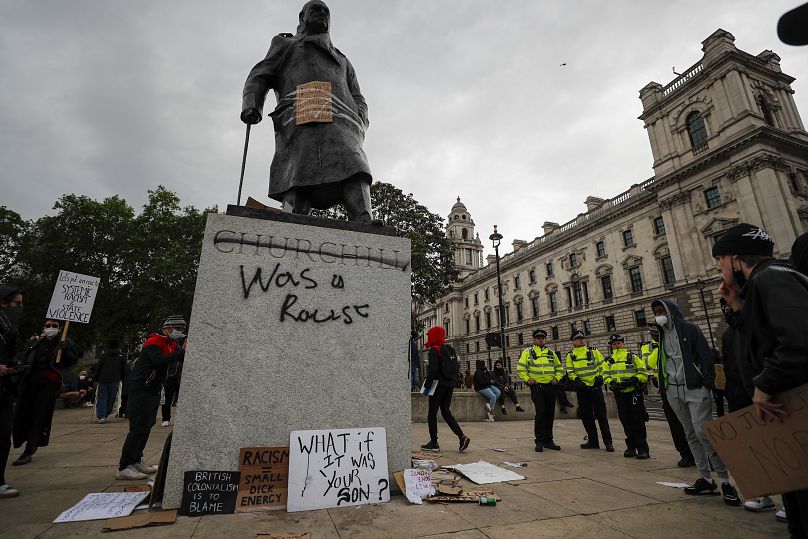25 May 2020: George Floyd is murdered by a US police officer
What happened on this day in 2020 was numbingly familiar to many Black Americans. George Floyd, an African-American man in his late forties, was murdered by the White police officer Derek Chauvin as he arrested Floyd. It was only the latest example of racialised police brutality in the States, and came just two months after 26-year-old Breonna Taylor was killed in her home when plainclothes police officers forced entry.
Maybe it was the livestream of Floyd’s murder, letting the world hear him plead to Chauvin that he couldn’t breathe, which caused his murder to inspire such a huge international response. Perhaps it had something to do with the timing. At the time, much of the world was still in lockdown due to the COVID-19 pandemic.
Watching Floyd’s death in real time, as people were trapped at home disconnected from family and friends, may have had something to do with the scale of the moment’s condemnation. Whatever it was, though police brutality was nothing new for the Black community in the US, Floyd’s death sparked greater recognition of racism.
Looking back on his death three years later, it is remarkable how influential it was on communities not just in the US, but across Europe.
Protests started in Minneapolis, where Floyd had lived, but soon spread across the Atlantic to a variety of European cities. Despite the pandemic lockdowns, demonstrations took place in almost every European country. Many of the protests were organised by local chapters of the Black Lives Matter political movement, which saw increased support at the time.
The biggest protests were in capital cities – thousands of people gathered in large events in Helsinki, Reykjavik, Stockholm, London, Lisbon, Vienna, Brussels, Paris, Berlin and Zurich. Many of the events were peaceful, although some faced severe law enforcement interventions due to pandemic guidance.
In the UK, the protests against Floyd’s murder renewed conversation about the country’s own racism issues, with protesters in Bristol pulling down a statue of slave owner Edward Colston and throwing it into the harbour.
The response across social media was also notable with many people posting black squares on Instagram to highlight the event. Much of the news agenda across Europe pivoted to focus on how racism was still endemic across European societies.
The Black Lives Matter uprising “was the spark of a lot of development and discussion in Europe around police violence,” Ojeaku Nwabuzo, a senior research officer at the European Network Against Racism told Euronews a year after Floyd’s death.
One of the biggest actions in Europe in response to Floyd’s death was the EU’s Anti-racism Action Plan for 2020-2025.
“We need to talk about racism. And we need to act. It is always possible to change direction if there is a will to do so. I am glad to live in a society that condemns racism. But we should not stop there. The motto of our European Union is: ‘United in diversity’. Our task is to live up to these words, and to fulfil their meaning,” EU President Ursula von der Leyen said in June 2020.
The initiative has since created national plans for EU countries to tackle racism and racial discrimination. Putting this into EU legislation is a key step to further the fight against racism.
But it’s not all been good news. While the protests across Europe brought the public’s condemnation of police brutality to the fore, in the UK, laws have since been made to increase the police’s ability to clamp down on the act of protest. Most recently, these powers were seen in action when police arrested people ahead of King Charles III’s coronation in case they wanted to protest the event.
On a social level, the BLM-led protests following Floyd’s death have changed cultural taboos around discussing racism. ‘Why I'm No Longer Talking to White People About Race’, the 2017 book by British author Reni Eddo-Lodge became a #1 bestseller in the UK. Film and television highlighted institutional and historical racism through shows like David Olusoga’s documentary series ‘Black and British: A Forgotten History’ and Steve McQueen’s ‘Small Axe’ film anthology.
It may be hard to quantify just how much changed after Floyd’s death – and it is certain that change is still happening far slower than it should – but the longstanding influence of George Floyd and the BLM movement at large has seemingly brought the international conversation to a new level.













